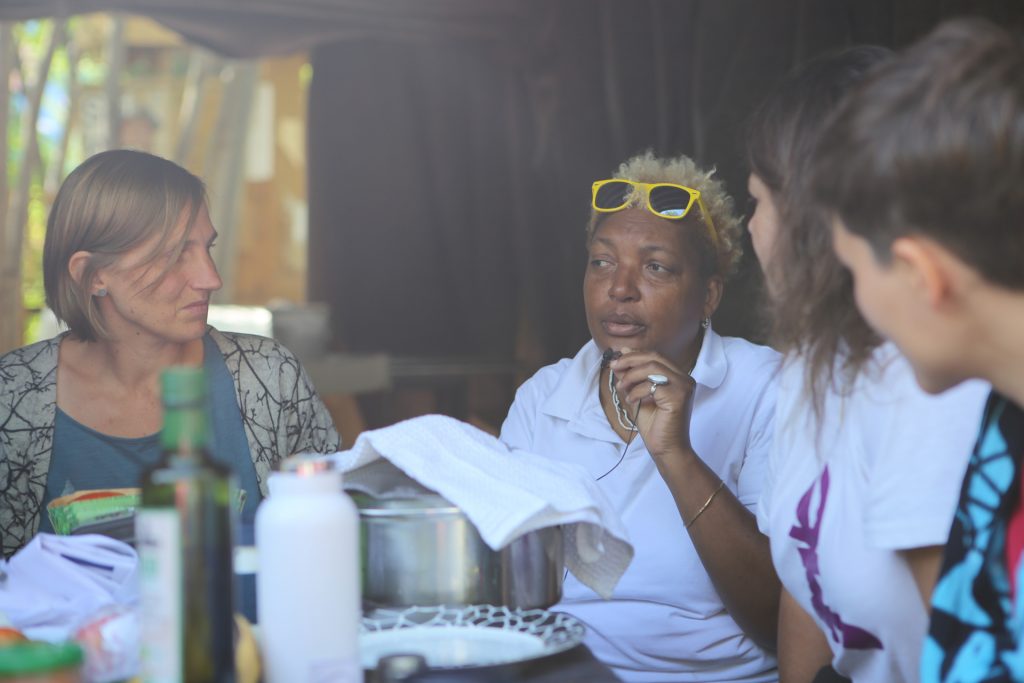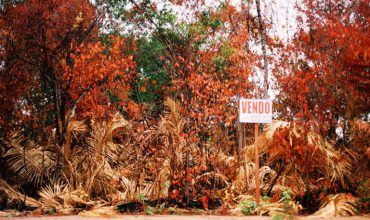
Situated knowledge / Global ecologies: a collaborative Walkshop Ramble was a three-day project on social-ecological justice, initiated by artist Barbara Marcel and journalist Camila Nobrega, which took place between 2 and 4 September in the Prinzessinnengarten space, an urban garden and a project against gentrification in Berlin. The project brought together scientists and environmental activists, journalists and artists, for an experimental format of knowledge exchange. The main themes were guided by different understandings of what has been called ecology and the global dynamics of knowledge production and narratives about the territories, seeking decolonial and antipatriarchal views.
The methodology was based on the process of walking collectively over these three days, visiting spaces of resistance, exhibitions, and interviewing people of reference on the themes. At the end, small podcasts were produced by each group.
As a closing debate in collaboration with the project »Licht Luft Scheiße. Perspektiven auf Ökologie und Moderne«, the dialogue was open to the public, with the participation of the workshop participants, and the presence of the Brazilian urban farmer and academic researcher Sílvia Baptista, part of the struggle for land rights and agroecology initiatives in urban spaces in Brazil. The debate focused on the ongoing narratives about social-environmental conflicts in Brazil and Germany. From a local-global perspective and reflecting on what was produced throughout the Workshop, the aim was to discuss asymmetries related to land rights and to the right to imaginaries. The role of patriarchy and coloniality in organizing bodies and territories were in the core of the discussion.
Foi um projeto de três dias sobre justiça socioambiental, iniciado pela artista Barbara Marcel e pela jornalista Camila Nobrega, que teve lugar entre 2 e 4 de Setembro no espaço Prinzessinnengarten, um jardim urbano e também um espaço contra a gentrificação em Berlim. O projeto juntou cientistas e ativistas, jornalistas e artistas, para um formato experimental de troca de conhecimentos. Os temas principais foram orientados por diferentes entendimentos do que tem sido chamado ecologia e a dinâmica global da produção de conhecimento e narrativas sobre os territórios, em busca de visões descoloniais e antipatriarcais.
A metodologia foi baseada no processo de caminhar coletivamente, ao longo desses três dias, visitando espaços de resistência, exposições e entrevistando em conjunto pessoas de referência nos temas. Ao final, foram produzidos pequenos podcasts por cada grupo participante.
Como debate de encerramento em colaboração com o projecto “Licht Luft Scheiße”. Perspektiven auf Ökologie und Moderne”, o diálogo foi aberto ao público, com a participação dos participantes no workshop, e a presença da agricultora urbana brasileira e investigadora académica Sílvia Baptista, parte da luta pelos direitos da terra e iniciativas agroecológicas nos espaços urbanos no Brasil. O debate centrou-se nas narrativas em curso sobre os conflitos sócio-ambientais no Brasil e na Alemanha. De uma perspectiva local-global e refletindo sobre o que foi produzido ao longo do Workshop, o objetivo era discutir assimetrias relacionadas com os direitos à terra e ao direito de imaginar. O papel do patriarcado e da colonialidade na organização de organismos e territórios esteve no centro da discussão.






